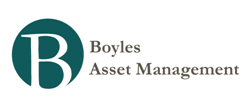John Mauldin: The Ride of the Keynesian Cowboys
Let Us Count the Unintended Consequences
Is there a chance that it could work? The short answer is, "Yes, but I doubt it." The whole purpose of QE2 is to try and get consumers and businesses spending. For a Keynesian, it is all about stimulating final consumer demand. That is tough in a world coming out of a credit crisis, where consumers are wanting to deleverage.
But what if they push a few trillion into the economy and it shows up in the stock market? Or the market just feels good that "Daddy" is doing something and runs up on its own? Can that change consumer sentiment? Will we feel like spending more? Could that be the catalyst? Maybe, but I doubt it. But you can bet your last trillion they are going to try.
It is doubtful that any QE2 that is enough to really do something in the way of reflating assets will be good for the dollar. Now, cynics might say that is the point, as a falling dollar is supposed to help our exports (and for my international readers, I get it that this is at the expense of other countries). Do we really want to open the first salvo in a race to the currency bottom? If the Fed does it, it gets legitimized everywhere.
(By the way, as I noted a few weeks ago, my call for parity for the euro and the pound is temporarily on hold. Stay tuned. We will get back to it.)
But QE2 also drives up commodity costs. Rising oil prices have the same effect on spending as a tax increase. As do rising food costs, etc.
How does one control inflation by printing money on the order of 10% or more of GDP? Is 3% ok? Do you really want to get to 4% and then have to start taking off the stimulus to get inflation under control, and push us back into recession?
You don't get inflation without a rise in interest rates. What about the increased costs of financing an ever-rising government debt? And aren't higher rates what the Fed is fighting? Talk about confusing the market.
Does the Fed really want us to get our animal spirits back up and go back in and borrow more money? Isn't too much leverage what got us into this problem to begin with? Does the Fed really want to persuade us to go out and buy mispriced assets? Should we buy stocks now in hopes that QE2 somehow finds a transmission mechanism and keeps us from recession? If it doesn't work, then all those buyers will get their heads handed to them, making matters even worse.
What if, as I think likely, the QE money simply makes a round trip back to the Fed balance sheet? Do we go for QE3? At the Barefoot Economic Summit I just attended (see more below), one very well-connected economist said he would start getting interested about QE when it approached $6 trillion. That is the number he thinks would be needed to actually have an effect. It raised a few eyebrows when he told that to David Faber on CNBC.
If the money makes a round trip back to the Fed, the markets will get spooked. All kinds of markets.
The only way I think they do not pursue QE is if the economic data in the next few months suggests the economy is beginning to heal itself. That will make the next few months worth of data more critical than usual. The stock market seems convinced that QE2 will be good for the economy and the markets, and thus bad news will be perversely considered good.
Sadly, if we go down that path I think this is going to end in tears. There are just too many unintended consequences that can reach up and bite us in our collective derrieres. I am not sanguine about 2011. I dearly, truly hope I am wrong. For your sake, gentle reader, and for my seven kids.
- John Mauldin: Unintended Consequences
Let me introduce Mauldin's Rule of Thumb Concerning Unintended Consequences: For every government law hurriedly passed in response to a current or recent crisis, there will be two or more unintended consequences, which will have equal or greater negative...
- Hussman Weekly Market Comment: Qe2 - Apres Moi, Le Deluge
Last week, a number of Fed officials came out in tandem with essentially the same message - the Fed's policy of quantitative easing is likely to end with QE2. It's important to think carefully about the implications of this for the markets. My...
- Hussman Weekly Market Comment: The Recklessness Of Quantitative Easing
Risk without benefitDespite the probable lack of measureable benefits, further QE poses significant risks. It has already triggered a steep decline in the exchange value of the U.S. dollar, and threatens a destabilization of international economic activity,...
- Inflation Won’t Solve Our Debt Problems – By Catherine Rampell
Thanks to Ian for passing this along. Lately I have seen a few suggestions, here and there, that the United States should consider inflating its way out of its rising debt burden. The country essentially inflated its way out of much of its debt during...
- Weekly Roundup - March 19, 2016
Well another week gone and another week home. Even though oil prices have been climbing higher I haven't seen an uptick on the exploration side. Although I don't really expect to see too much of an increase because even in the high $30's/low...

